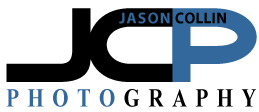 Photo by Kathleen, Editing by Jason - red barn in Ohio before and after using Aperture & PhotoshopMy DSLR Photography students are increasingly wanting to learn how to edit their photographs, in addition to how to use their DSLRs out in the field. I am of course very happy about this as I highly recommend learning to shoot and edit simultaneously (read here). I always say that publishing and printing photographs "straight out of the camera" or "getting everything right in camera" are nice myths that never existed, not even in the film days. Of course one should show skill in the field and produce a very well exposed and composed shot in camera. I do believe in the common axim of today that one should not think, "oh, I'll just fix that in Photoshop later." If you realize a flaw in the field, do your best to get it fixed/corrected right then and there. I often shoot weddings on beaches, if I can pause for 5 seconds to let a person passing by in the background get out of the frame, I will totally do that rather than thinking, "I'll just clone them out at home." Cloning out the person would take a lot longer than 5 seconds!
Photo by Kathleen, Editing by Jason - red barn in Ohio before and after using Aperture & PhotoshopMy DSLR Photography students are increasingly wanting to learn how to edit their photographs, in addition to how to use their DSLRs out in the field. I am of course very happy about this as I highly recommend learning to shoot and edit simultaneously (read here). I always say that publishing and printing photographs "straight out of the camera" or "getting everything right in camera" are nice myths that never existed, not even in the film days. Of course one should show skill in the field and produce a very well exposed and composed shot in camera. I do believe in the common axim of today that one should not think, "oh, I'll just fix that in Photoshop later." If you realize a flaw in the field, do your best to get it fixed/corrected right then and there. I often shoot weddings on beaches, if I can pause for 5 seconds to let a person passing by in the background get out of the frame, I will totally do that rather than thinking, "I'll just clone them out at home." Cloning out the person would take a lot longer than 5 seconds!
Kathleen took a shooting-based DSLR photography lesson back in early June. Since then she had been shooting some scenery in Ohio, including old barns (above). She requested a lesson on editing and since she is an Aperture user as I am, I could show her my exact workflow from importing photographs to producing a finished photograph. We also mixed in Photoshop (Elements) into her workflow from right within Aperture.
The red barn is her photograph. What I showed her in Aperture was getting the exposure and contrast corrected to remove what I call the "gray film" that coats many digital photographs, especially those taken on overcast days. Note the overall lack of a dull gray cast on the bottom photo. This is usually the number one flaw I see in people's digital photographs, the dull gray film coating.
Next we gave the image a little pop using the vibrancy slider in Aperture and then started to bring in some details using the definition slider. At that point we exported the image to Photoshop (Elements for her, CS5 for me) right from within Aperture and worked on selective editing. We selected the red barn walls and adjusted the contrast just on that part to bring in even more detail and pop without effecting the rest of the image. We did the same to the roof, but that did not cause much change. Lastly, we applied unsharp mask (my preferred sharpening method) which brought even more detail, especially in the window shutters.
I also taught Kathleen all the keyboard shortcuts that are massive time savers when using complicated, multi-tool apps like Aperture and Photoshop. She filled a whole notebook page with them. We have already scheduled our next editing lesson for two weeks from now!
